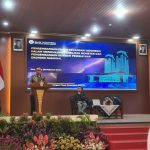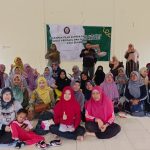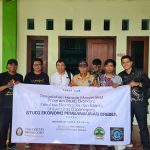Semarang, February 3, 2025, in order to prepare the Regional Action Plan (RAD) for the Sustainable Development Goals (SDGs) of Central Java Province for 2025-2029, the Regional Development Planning Agency (Bappeda) of Central Java Province held a brainstorming forum. The event, which took place in the Meeting Room on the 1st Floor of the Bappeda of Central Java Province, aimed to formulate a policy strategy for achieving SDGs targets systematically and in a focused manner, in line with the decade of action stage which demands acceleration of the implementation of sustainable development programs.
Various stakeholders were invited to the forum, including academics, representatives of several provincial government OPDs, and regions. One of the main speakers in this discussion was Professor of Economics, Faculty of Economics and Business, Diponegoro University, Prof. FX Sugiyanto. He provided in-depth insights into the challenges and opportunities in implementing an inclusive economic growth strategy in Central Java through a synergistic approach of the green economy and blue economy.
One of the discussion activities in the forum
Prof. FX Sugiyanto emphasized that in order to achieve sustainable and inclusive economic growth, Central Java needs to optimize its natural resources and potential while still paying attention to environmental balance. In addition, he also emphasized the importance of strengthening institutions in order to reduce poverty and inequality between the rich and the poor. According to him, without strong institutions, the distribution of welfare will be difficult to achieve and economic growth tends to only benefit certain groups. Therefore, policies that strengthen economic inclusiveness must be accompanied by institutional reforms that ensure fair access to resources and economic opportunities for all levels of society.
This brainstorming forum is expected to produce strategic recommendations that can be integrated into the Central Java RAD TPB 2025-2029. With discussions involving various parties, it is hoped that the policies designed will not only be able to answer current economic challenges, but also create a more inclusive and sustainable development model for the future of Central Java.







